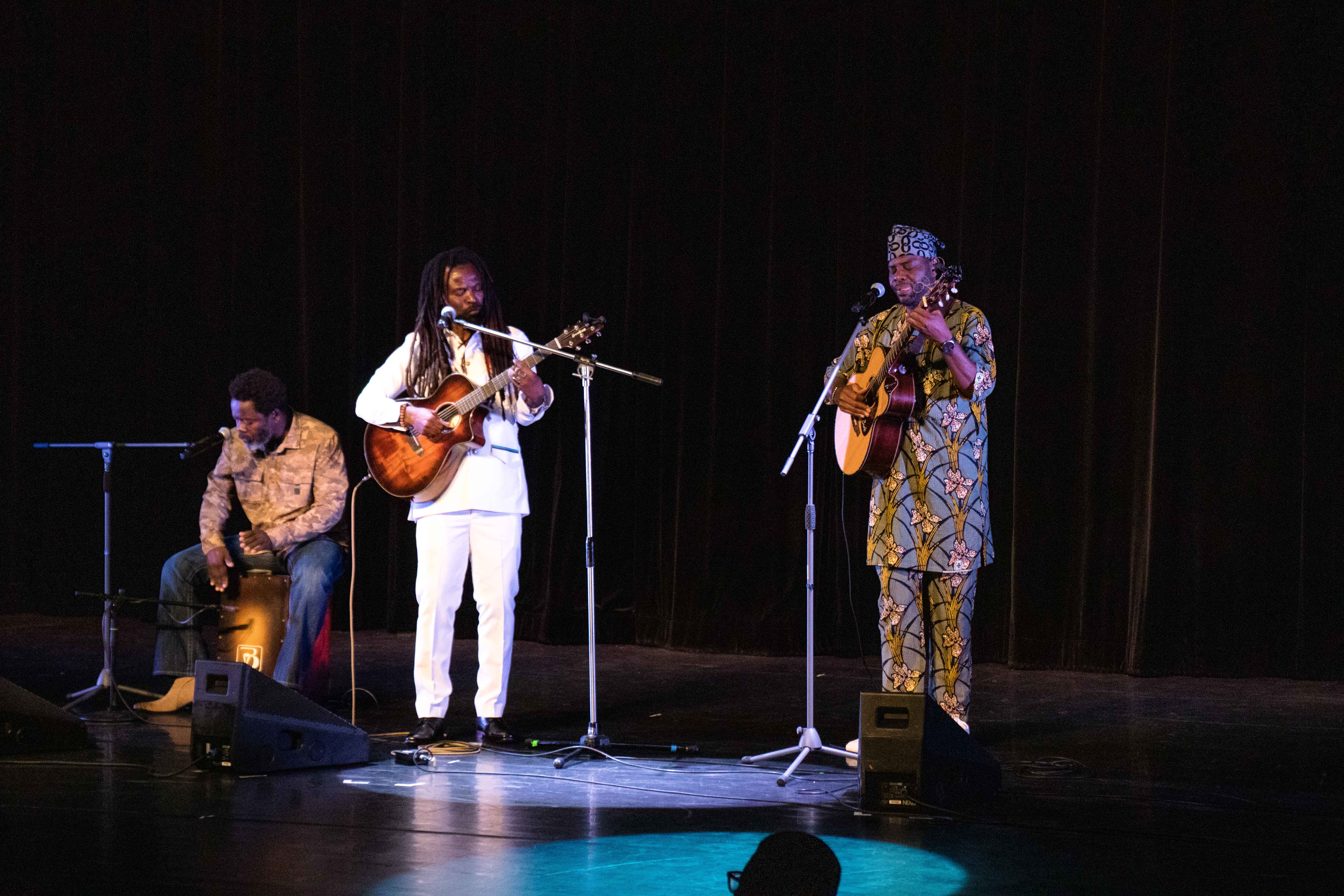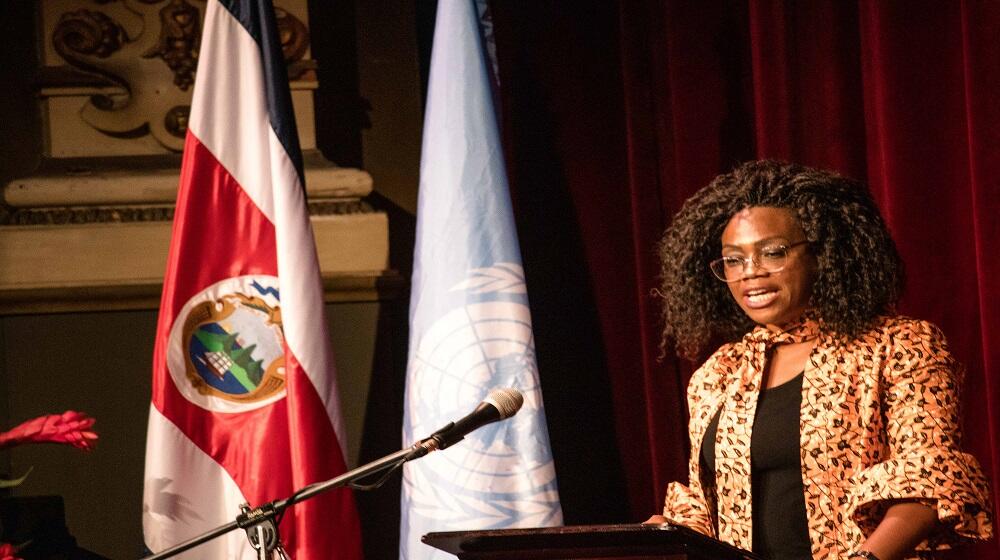On August 31, 2021, the United Nations (UN) commemorated the first International Day for People of African Descent at the National Theatre in the capital of Costa Rica, San José. The global event was aimed at promoting the ‘extraordinary contributions of the African diaspora around the world and to eliminate all forms of discrimination against people of African descent.’
To mark this landmark event, The Government of Costa Rica extended an invitation to the Government of Ghana, with a 14-member delegation led by the Akwamuhene, His Majesty, Odeneho Kwafo Akoto III. The delegation included the Deputy Minister of Tourism and Creative Arts, Hon. Mark Okraku-Mantey and MP for Abura-Asebu-Kwamankese & chair of the Young Parliamentarians’ Forum of Ghana, Hon. Elvis Morris Donkoh.
The multicultural event brought together political leaders, including the President and Vice President of Costa Rica, His Excellency, Carlos Alvarado Quesada and Her Excellency, Epsy Campbell Barr. The King of Akwamu, His Royal Majesty, Odeneho Kwafo Akoto III, graced the occasion in traditional regalia to the admiration of guests.
In a keynote address to the teeming audience gathered, the Vice President of Costa Rica, H.E. Epsy Campbell noted that, ‘this occasion was necessary to define a new identity for people of African descent’, where not only their rights will be upheld but also, inequalities and systemic racism will be eliminated.
The sentiments raised by the Costa Rican Vice President, H.E. Epsy Campbell Barr, who also happens to be the first black female of African descent to assume that office, was supported by the President, HE, Carlos Alvarado Quesada when he gave brief solidarity remarks at the event.
In a video message to participants, UN under Secretary-General and Executive Director of UNFPA, Dr. Natalia Kanem enjoined all to ‘celebrate the rich heritage and culture of people of African descent and unequivocally commit to ending all forms of racism and discrimination.’ She particularly called for violence and discrimination against African women and girls to stop.
The audience were treated to songs of African origin and also ‘calypso’ performances in recognition of the native contributions of Africans to tradition and culture across the world. There were also performances by artists across Africa, including the Grammy-nominated reggae act, Rocky Dawuni from Ghana.



